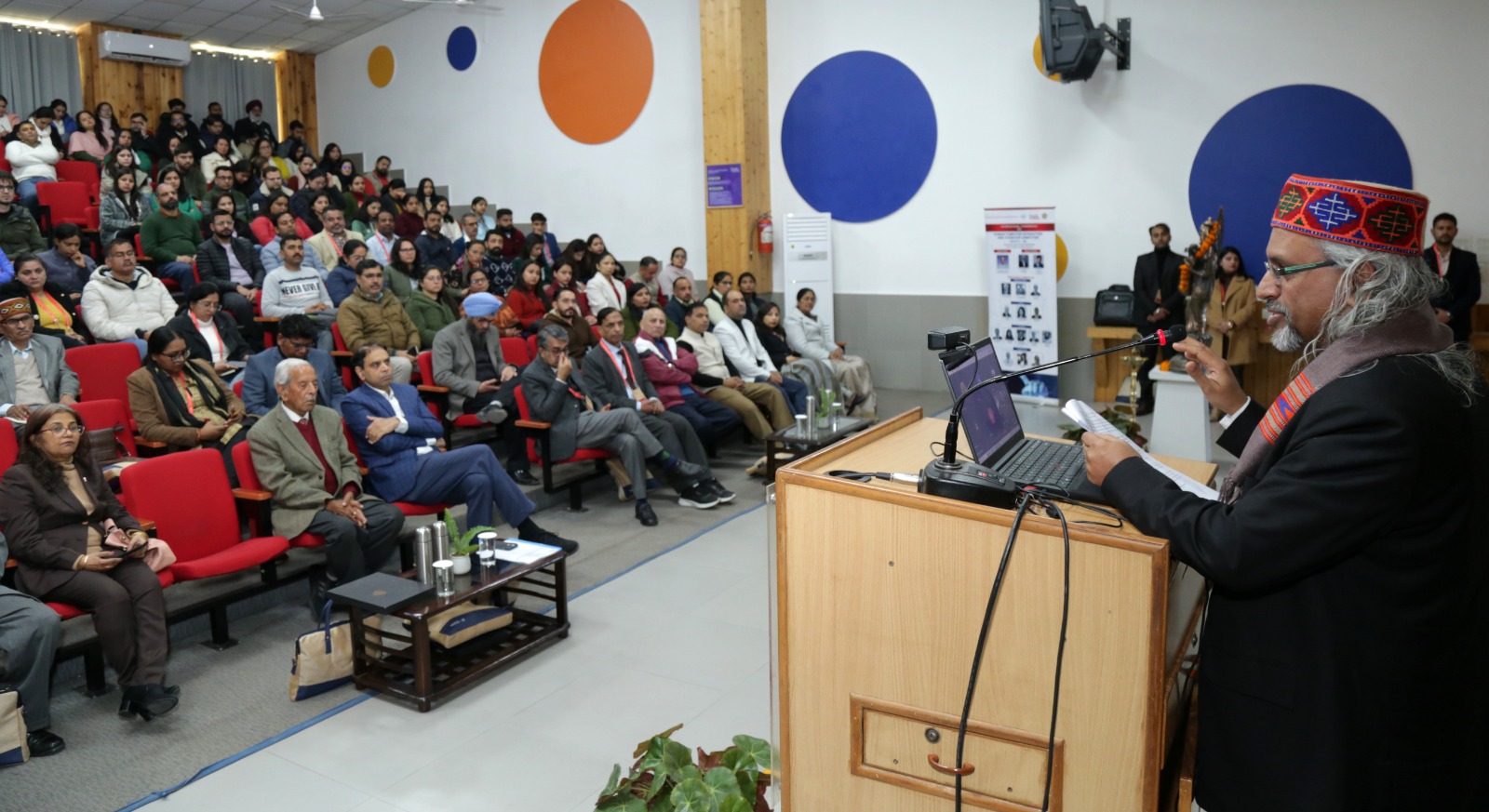
The two-day International Conference on Human-Computer Interaction and Cognitive Computing (HCICC-2025) concluded at Shoolini University on January 9. The event, co-organised by the Yogananda School of AI, Computers and Data Sciences of Shoolini University and the National Institute of Technology (NIT) Hamirpur, drew a large turnout with broad representation from academia and industry.
The conference provided a key platform for sharing the latest ideas and advancements in Human-Computer Interaction (HCI) and Cognitive Computing.
Distinguished speakers such as Associate Professor Sandeep Kaur Kuttal from the North Carolina State University, United States, and Associate Professor Sanaa Kaddoura from Zayed University, United Arab Emirates, provided in-depth knowledge on the role of human-centric factors in software engineering and the advancements in large language models.
One of the highlights was a lecture by PK Gupta, Global CTO at Dell Technologies, titled ‘Emerging Technologies and Opportunities for 2025 and Beyond’. Gupta discussed the existing research gaps in key areas like healthcare, agriculture, defence, and manufacturing, advocating for enhanced IT industry collaboration to address these challenges.
The contributions of Prof Tapan Gandhi from the Indian Institute of Technology (IIT) Delhi and Prof Varun Dutt from IIT Mandi were also notable. They emphasised the importance of HCI research in advancing cognitive science, with Prof Gandhi presenting his work on Brain-Computer Interfaces and Prof Dutt focusing on behavioural cybersecurity.
Prof Mohinder Singh Thakur, Chair of the HCICC-2025 organising committee, expressed his gratitude to the Shoolini University management, NIT Hamirpur, and all key partners, including the National Institute of Electronics and Information Technology (NIELIT) Shimla, iCreate Gujarat, Science Museum Shimla, the Director of Higher Education Himachal Pradesh, the Anusandhan National Research Foundation (ANRF), and the Science and Engineering Research Board (SERB), Government of India, for their support. He acknowledged the invaluable contributions of speakers, session chairs, and participants in making the conference a landmark event.
In his closing remarks, Prof Thakur congratulated Arvind Sharma, Convenor of HCICC-2025, and the organising team for their exceptional efforts in facilitating the seamless execution of the conference.
The event began on January 8 with a welcoming address by Prof Virender Rihani, who acknowledged the support from knowledge partners, including TIH IIT Mandi and iCreate Gujarat. Shoolini University Founder-Chancellor Prof PK Khosla urged the participants to lead the next wave of AI innovation, focusing on governance and ethical practices.
Chief guest Prof Daman Dev Sood, Chair of PR and P in IEEE Delhi Section and Professor of Practice at Chitkara University, highlighted the necessity for research to prioritise humanity, resilience, and sustainability. Samiya Khan from the University of Greenwich inspired the audience with her thoughts on curiosity and innovation in AI, emphasising the importance of ethics in technological development.
Prof Lynn Robert Carter shared insights from his 45 years of experience in software engineering, focusing on the critical role of AI in life-critical systems like food and water supply. President and Chief Innovation & Marketing Officer at Shoolini University Prof Ashish Khosla, motivated the young attendees to responsibly manage the rapid advancements in AI, describing them as future custodians of technology.
The conference provided an invaluable platform for participants to present research papers, share development experiences, and showcase startup ideas in the domains of HCI and related sub-domains, enriching the academic and professional landscape of human-computer interaction.
Jan 10, 2025
